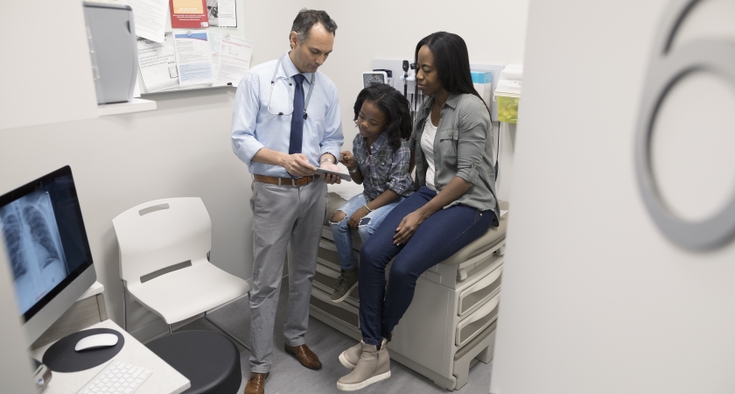
Years ago, an ad ran on TV for a local phone service. Its tag line was, “In the South, communication is a way of life.”
Well, duh. Is it not that way up North, even with their funny accents? (Joking!)
How we communicate with each other, especially when speaking, is vital. While most of our conversations mirror our daily life – hurried, clipped and incomplete – there is a certain sense of beauty in the spoken word. It is why The Iliad and The Odyssey were told to audiences for centuries before someone had the idea to write them down.
One of the many great things about practicing medicine – and there are a lot – is that I get to listen to people tell me their stories. They are simultaneously fascinating and informative, often tinged with humor and pathos. At times, I will forget to take notes, enrapt. One of my medical school professors was fond of telling us: “Listen to the patient. He is telling you the diagnosis.” But it is more than that; they are telling you their diagnosis. The difference is more than mere semantics, as the more personal we make a diagnosis the better our chances of successfully treating.
While I strive to create and edit patient notes in a narrative form, so they read more like a story and less like a template, there are times when a patient will say something and I will stop, feel a smile creep across me, and write it down verbatim. I realize there is no amount of editing that could improve on what I just heard.
The other day while talking to a mother about her 2-year old son’s dietary habits, she said, “He has a very broad, sophisticated palate.” It had never occurred to me that the making of a gourmand could start so young. Visions of this toddler sampling apple juice for body, fullness and aroma danced through my head. “This is going in the record word for word,” I told her.
As you would expect, not all conversations are enjoyable. One patient with horrible conjunctivitis (pink eye) told me it felt like “someone is sticking razor blades in my eyes.” My unfortunate younger brother, suffering from a bout of vertigo, described his symptoms succinctly yet completely: “As long as I don’t move or open my eyes, I feel fine.” From 600 miles away, I could only offer him love.
At times what is initially frightening turns out benign. When school starts back, I always ask patients what exciting things they did over the summer. One young man flatly told me, “I was arrested and handcuffed face down.” I imagine the look on my face was priceless. What followed was a tale of an auto accident (not his fault), a bit of confusion and resolution without charges. However, I still ask if he’s added to his rap sheet when I see him.
It is moments like these – where it’s just me, my patients and families – that bring us closer and remind me why I chose this profession.
When he was not caring for his fellow citizens of Paterson, New Jersey, Dr. William Carlos Williams was a Pulitzer Prize and National Book Award winning poet. (Envious? Me?). A keen observer, Dr. Williams built some of his poetry around conversations with his patients. He understood that beauty was not just in the eye of the beholder, but in the ear as well.
For those of us fortunate enough to care for others, listen closely to what they tell us. You’ll not only improve the care you give; you will also find a new source of riches.
Dr. Stephen J. Ezzo is a pediatrician at Novant Health Matthews Children’s Clinic and immediate past president of the Mecklenburg County Medical Society.






